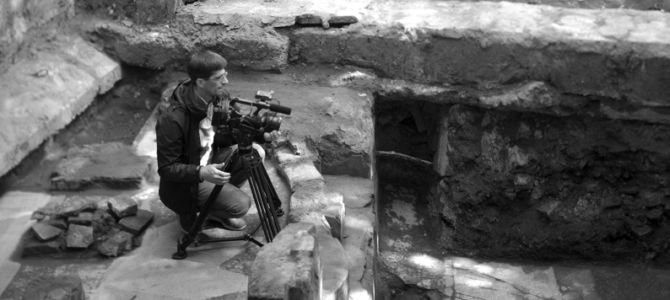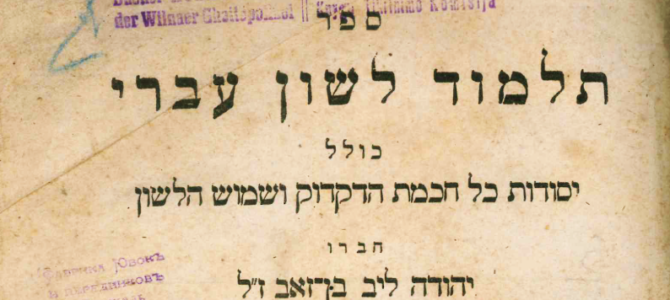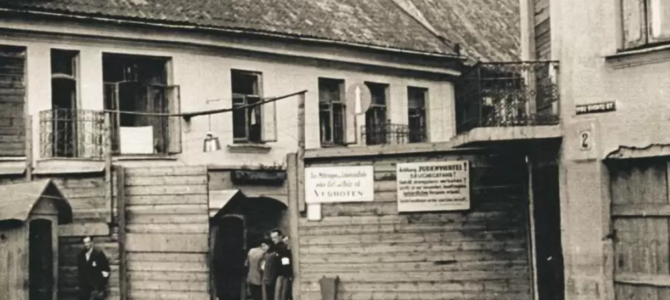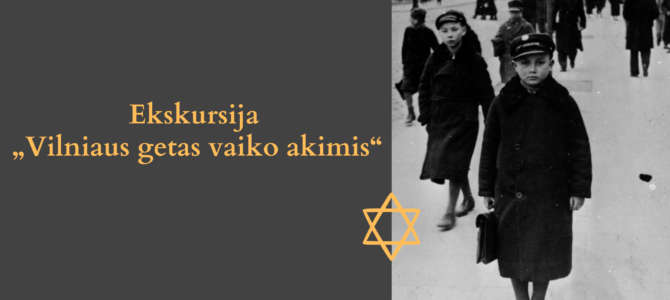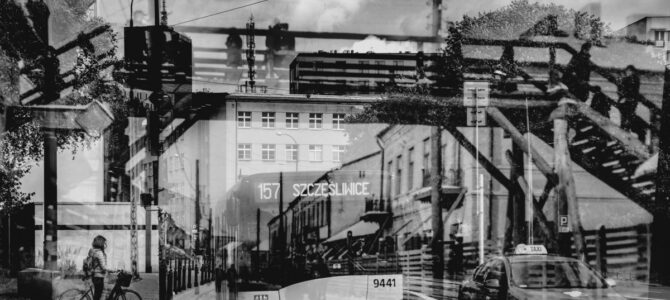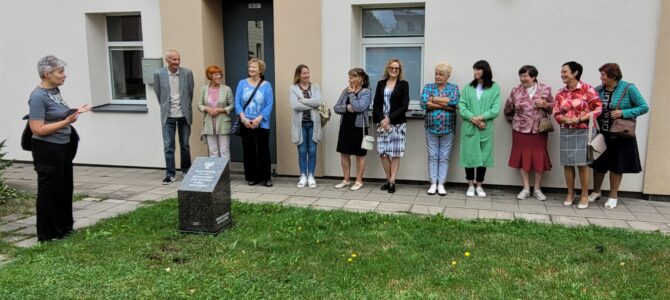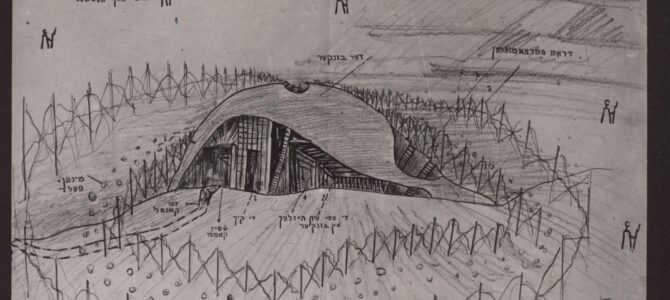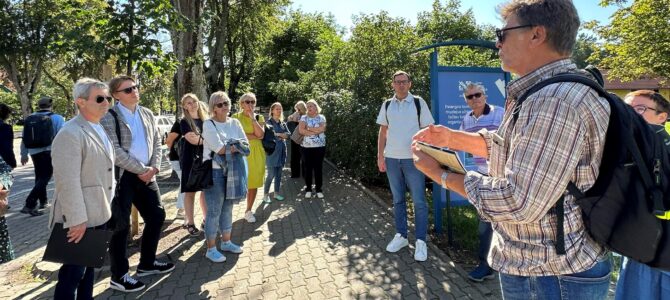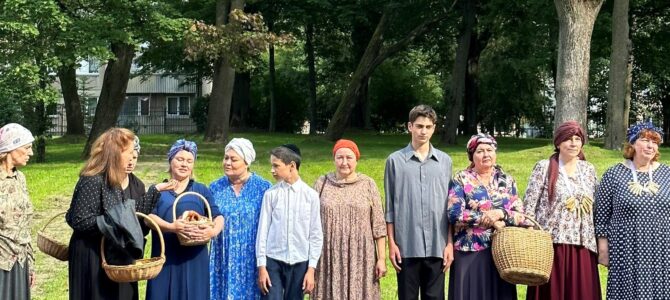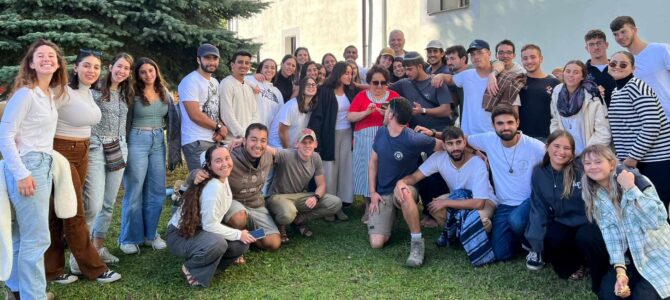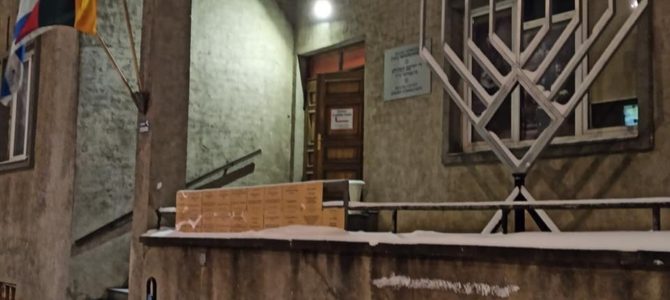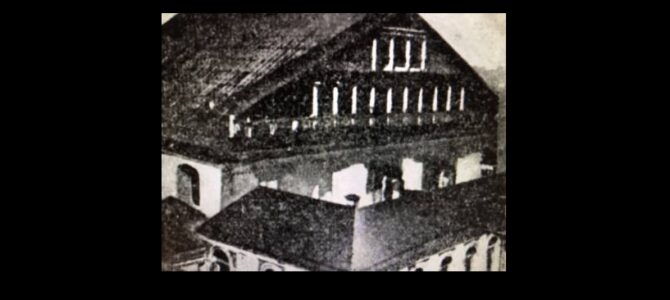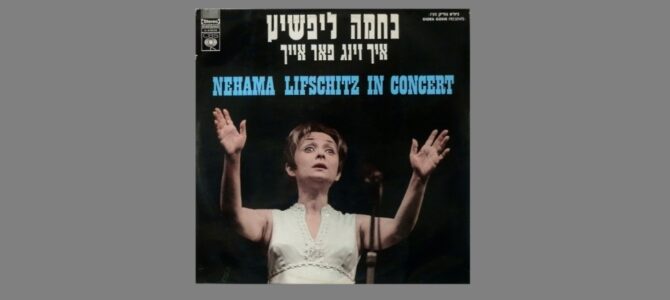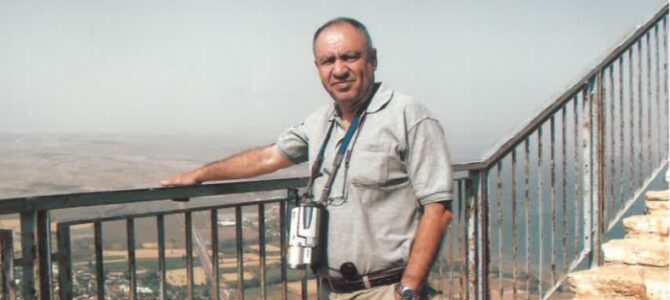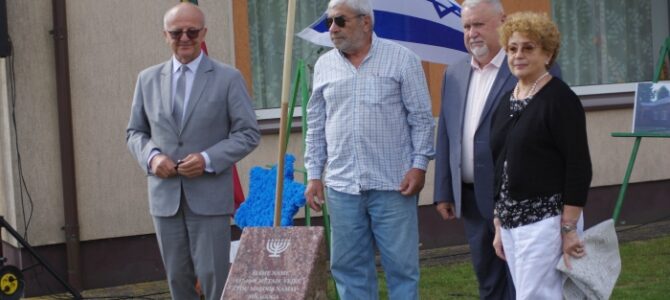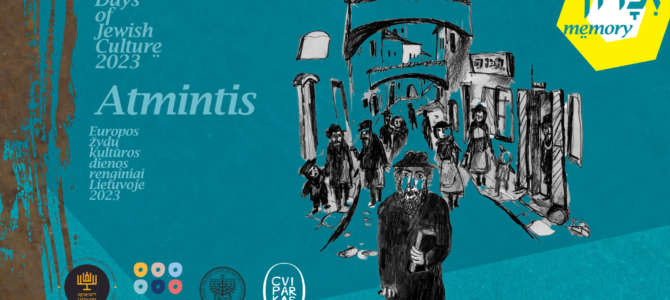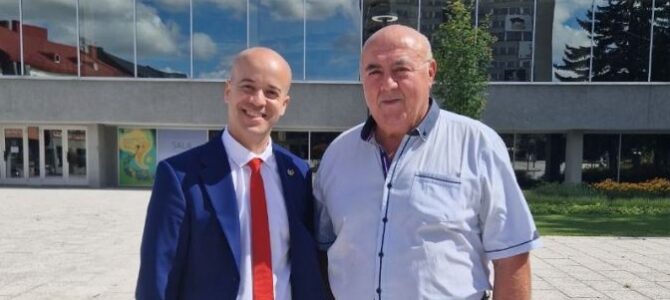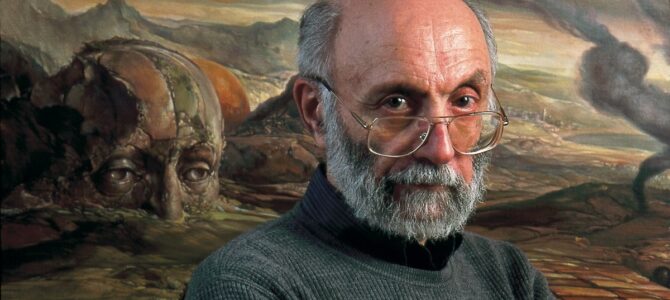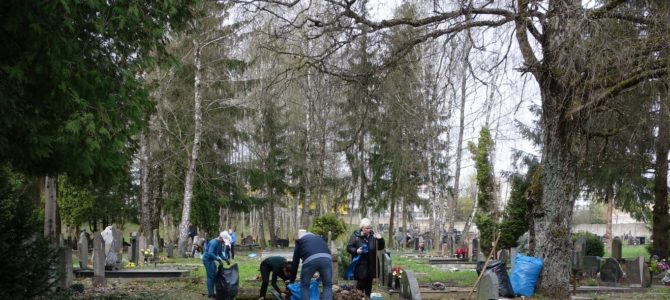Loïc Salfati’s documentary film “Secrets of the Great Synagogue of Vilnius” will be screened at 6:00 P.M. on September 20 at the Tolerance Center of the Vilna Gaon Jewish History Museum at Naugarduko street no. 10 in Vilnius. The film uses archival documents, testimonies and interviews with archaeologists from Israel, Lithuania and the USA to reveal hitherto little-known facts about the Great Synagogue which stood more or less intact for centuries, was heavily bombed during World War II and razed by the Soviet government in 1950. The director will talk about his film before the screening. The film is in Lithuanian and English with Lithuanian subtitles for the English-language segments.
#VilniusGhetto80


